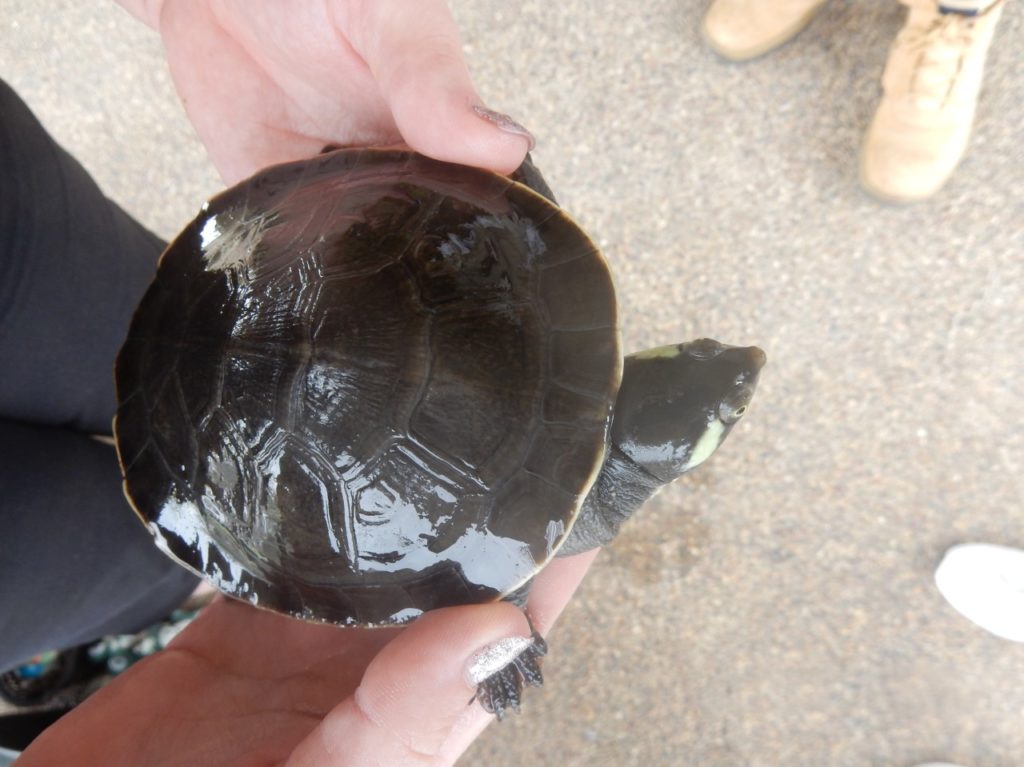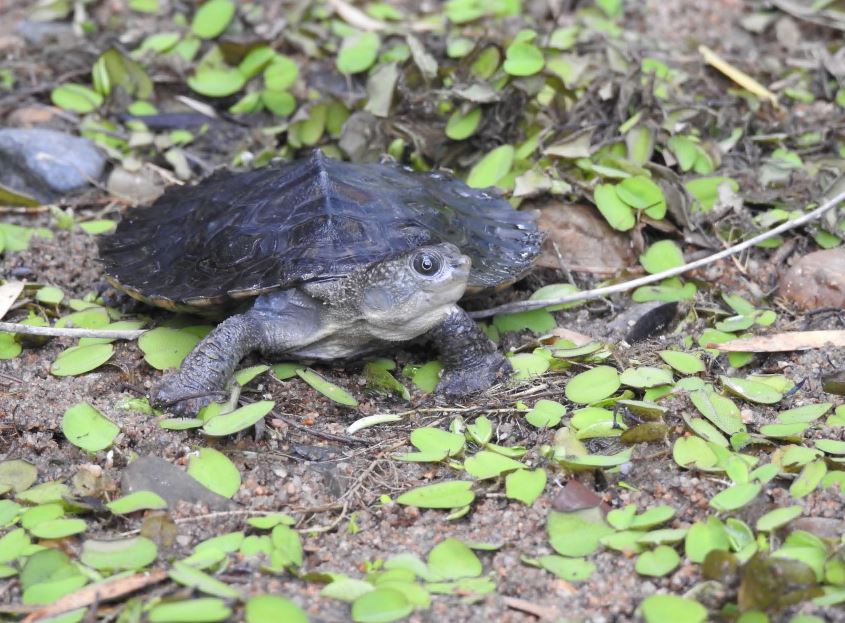
Alexandra Park Zoo is set to become home to a Krefft’s river turtle after it was rescued by DES officers.
The rescue came about after an eagle-eyed wildlife officer from the Department of Environment and Science spotted an advertisement on social media in the Wide Bay region.
While the turtle being offered for sale or giveaway by a wildlife carer was advertised as a saw-shell turtle, it turned out to be a white-throated snapping turtle, with a Krefft’s river turtle also found at the site.
A compliance check revealed the carer did not have a licence to keep the turtles and both animals were seized.
“Based on its small size, the white-throated snapping turtle was estimated to be about a year old. A veterinarian examined the turtle to ensure it was healthy and disease free,” a DES spokesperson said.

“Turtles kept in captivity are susceptible to bacterial infections from manufactured food and those infections can be passed onto wild turtle populations.
“With a clean bill of health, the turtle was fitted with a microchip and its location and movements will be tracked for research purposes.”
On 1 April 2020, wildlife officers released the turtle at an undisclosed location on the banks of the Burnett River and watched it scurry away.
The Krefft’s river turtle will be given to Alexandra Park Zoo this week where it will be an addition to the freshwater turtle display.
“The new arrival has been in isolation for about three weeks so will have another three weeks in quarantine at the zoo while we have vet checks completed to ensure that it is not carrying any diseases or other health issues that might be detrimental to the rest of the zoo collection,” curator David Flack said.
“Once it has completed the quarantine period, the plan is to house it in the turtle pond with Alby the white-throated snapping turtle.”
David said Krefft’s river turtles were only found in Queensland within drainage systems on the eastern side of the Great Dividing Range, from Brisbane all the way up to the base of Cape York Peninsula.
“As youngsters, Krefft’s river turtles are completely carnivorous, feeding on aquatic invertebrates, small fish, and crustaceans; pretty much any source of protein including carrion,” he said.
“As they develop into adults they become more omnivorous, adding aquatic plants and fruit that drops into the water from overhanging vegetation into their diet.”
David said the species could often be observed crossing roads during egg-laying season (October to January) searching for a place to lay their eggs away from the water’s edge.
“This is when they are most likely to come into conflict with vehicles on roads, so if you are driving through an area that has waterways near the road, slow down and keep an eye out,” he said.
Turtle licence
DES officers conduct regular compliance and licence checks. Wildlife carers are reminded that they can only keep animals they have a licence for.
Illegal trade, keeping and movement of wildlife can impact on wildlife populations, especially when threatened species are involved.
Many animals unlawfully taken from the wild die or become seriously ill, especially when being shipped interstate or overseas.
The maximum penalty for taking, keeping or selling wildlife without a permit is $391,650 or two years in prison.
Anyone with information about the illegal trade of native wildlife is urged to call DES on 1300 130 372 or Crime Stoppers on 1800 333 000.
- Other news: Alby’s eccentric hair impresses zoo visitors




